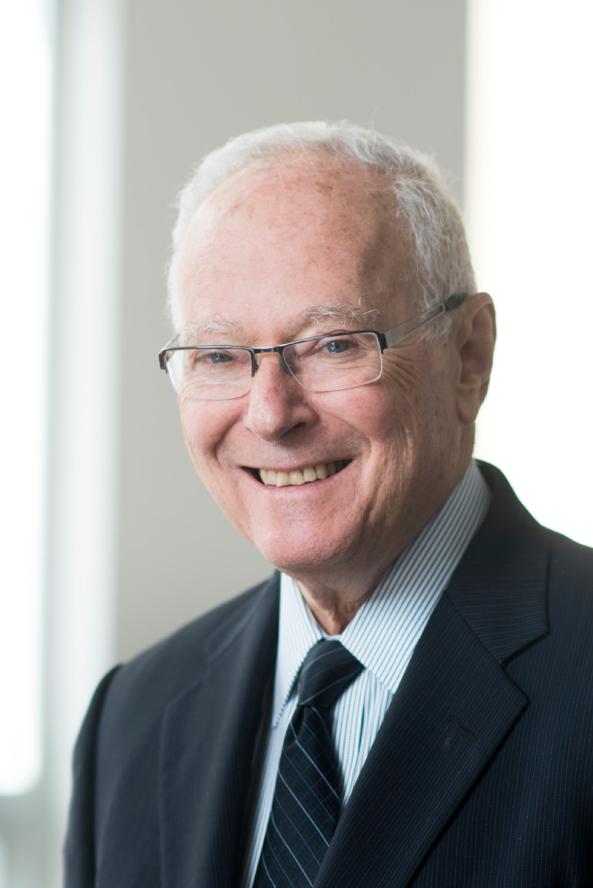-
About
-
Academics
- Physician Assistant
- Special Master’s (MBS)
-
Admissions & Financial Aid
- Tuition & Fees
-
Student Life
-
Research
- Research Labs & Centers
-
Local & Global Engagement
- Global Health Program
- Dean’s Medal Recipients
On Venturing Abroad
"The tactical goal of our medical school in developing rotation sites abroad is to choose a few locations where we can make a difference and where we can develop a relationship that’s meaningful for both sides."

My first job as a physician was in India. in many ways it was the formative professional experience of my life. You could say President John F. Kennedy was to blame. He had inspired me when I was a first-year medical student, watching him during the first televised presidential debates. Kennedy’s words about the mission of the proposed Peace Corps were thrilling to me, and I felt that this was something I wanted to be a part of as soon as I could. After graduation and a year of internship at Tufts Medical Center-and a two-week crash course in tropical medicine from the Centers for Disease Control in Atlanta under my belt-I set out with my new bride for New Delhi and a wonderful two-year adventure as the senior Peace Corps physician in India.
My job was to help tend to the medical needs of the 1,500 Peace Corps volunteers posted around the country. In effect, this entailed planning for the health and medical care of a population, a challenge that deepened my interest in community health. I also became part of a management team charged with administering the Peace Corps in India, the largest Peace Corps program in any country in the world.
That experience proved to be a fast and focused personal education for me. I learned how a management team functions. Besides me, our Peace Corps team included a finance person, a technical expert, a few operations managers and a variety of other specialists. The team CEO was a former steel company executive from California who had taken time off from his job to run the Peace Corps in India. He was a wonderful leader and proved to be an important role model for me. By watching our team work together, I absorbed many of the lessons of effective management that I would carry with me, and later employ, when I co-founded the Matthew Thornton Health Plan in New Hampshire and served as CEO of Tufts Health Plan for 17 years.
One of the first things I learned in India was how different health care could and should be from place to place, based on a given country’s resources, singular health-care challenges, and the culture and traditions of its people. The question of how and where to spend scarce funds had different answers in different countries. For example, in a nation like India, with a burgeoning population and extremely limited health-care resources, well-targeted public health and prevention measures made a great deal more sense than lavish spending on diagnostics and treatments.
In the decades since my Peace Corps days, countries like India have greatly refined their techniques for delivering health care. Christian Medical College, located in Vellore in southern India, is a wonderful example of that.
We send Tufts medical and public health students there for two-month stints to learn from our Indian colleagues how public health and community medicine can be practiced in a model setting.
The tactical goal of our medical school in developing rotation sites abroad is to choose a few locations where we can make a difference and where we can develop a relationship that’s meaningful for both sides. Besides India, we offer rotations in Panama, Nicaragua (for a one-month immersion), East Africa, Ghana and, most recently, Haiti. Although we have no plans to expand our rotation sites much beyond this list, we do want to stay responsive to needs as they emerge.
When a global relationship is working well, the benefits are mutual. As one example, junior faculty from CMC visit us here in Boston for up to 18 months at a time to learn about cutting-edge research techniques, while others from CMC come here for an M.P.H. degree. Foreign students are also welcomed frequently to our affiliated hospitals for clinical electives in their areas of interest.
Their hope, and mine, through this rich and varied exposure is that we all learn to care for each other more humanely and effectively, and that we realize we have much to learn from other cultures and countries.
Harris Berman, M.D.